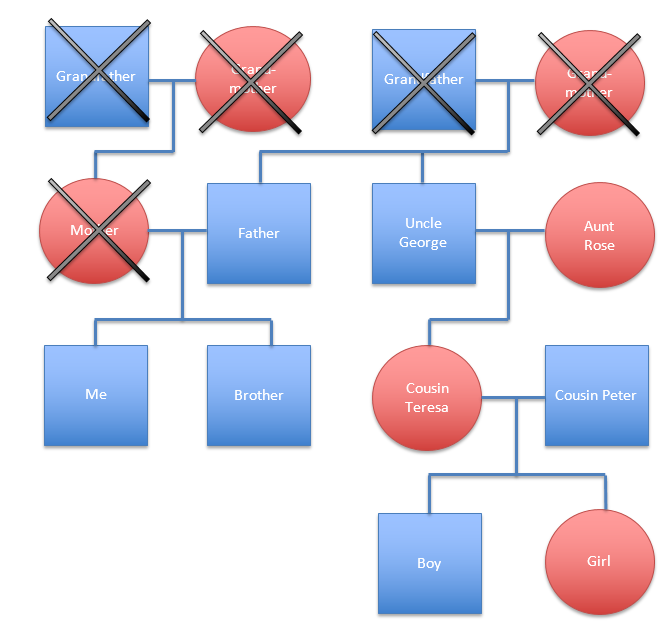Introduction
One of the simplest, but informative and fairly common tools for collecting family information is the genogram. A genogram is a form of a graphic family genealogy on which, in a special way – with the help of special characters – information is recorded about family members in at least three generations. The genogram, unlike other forms of consultative and therapeutic records maintained by a psychologist, allows you to constantly add and adjust every time you meet with your family.
This can be done by both a psychologist and a client. It enables the therapist and client to keep in mind a large amount of information about family members, their relationships, and critical events in family history. The genogram is not a test and does not contain clinical scales. However, it is a tool for collecting information about a problem family, i.e., performs the same function as the tests. The genogram is used to analyze family history from the perspective of system theory. The list of standard symbols used in the genogram is presented below.
Main body
Other important information may be briefly marked on the genogram next to those to whom it belongs: names, education, occupation, serious illness, current place of residence, etc. For a client, drawing the family’s genogram the first time on a piece of paper — even if there are conventional signs in front of him — is an almost impossible task. Therefore, as a rule, a psychologist or psychologist with the active participation of family members makes up the genogram.
Marriage and family are among those phenomena for which interest has always been steady and widespread. The importance that the family acquired in the era of civilization in the public and personal life of people led to a relatively early-born and constant interest in studying it. From the beginning of our century, significant social changes began, which also transformed marriage and family. First of all, it is the mass inclusion of women in production. The woman joined an active working, social life. The economic independence of women has undermined the traditional authority of men as the breadwinner of the family.
Equally important is the social equality of the sexes. It means not only the right of women to work, education, social security, participation in public and political life. This is equality in the family. Socio-economic transformations have also given rise to new interpersonal relationships, people’s views on personal, including family happiness. Modern man not only has the right to independently build his fate and family life but also actively uses this right. He does not want to put up with a defective marriage, ugly relationships in the family, and actively seek personal happiness.
Conclusion
The increased interest in family and marriage is due to a number of reasons. A third of all, marriages are not viable. The issue of strengthening marriage and improving the marriage structure of the population is acquiring the most crucial state significance in connection with the birth rate problem. The solution to such issues is unthinkable without the study of family relations. Most modern scientists have come to the conclusion that the fight against negative social phenomena, such as male and female apathy or aggression, alcoholism and drug addiction, growing crime, and mental disorders, cannot be effective if people ignore the role of marital relations in the occurrence of these phenomena.
Genogram
